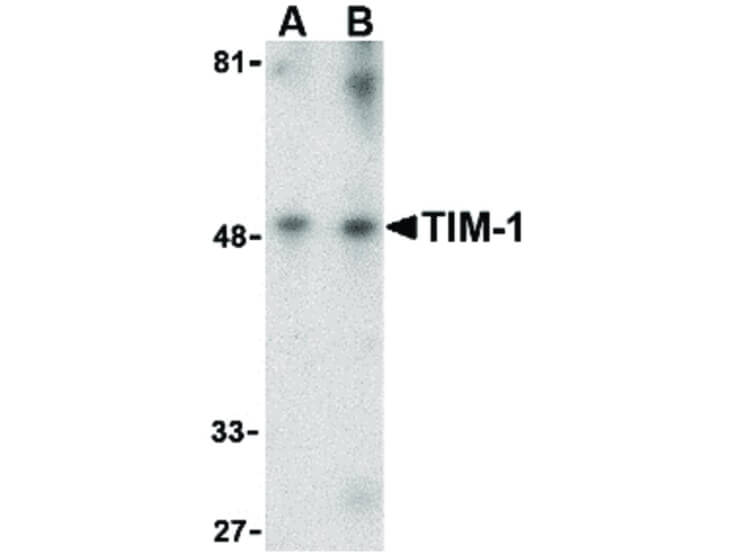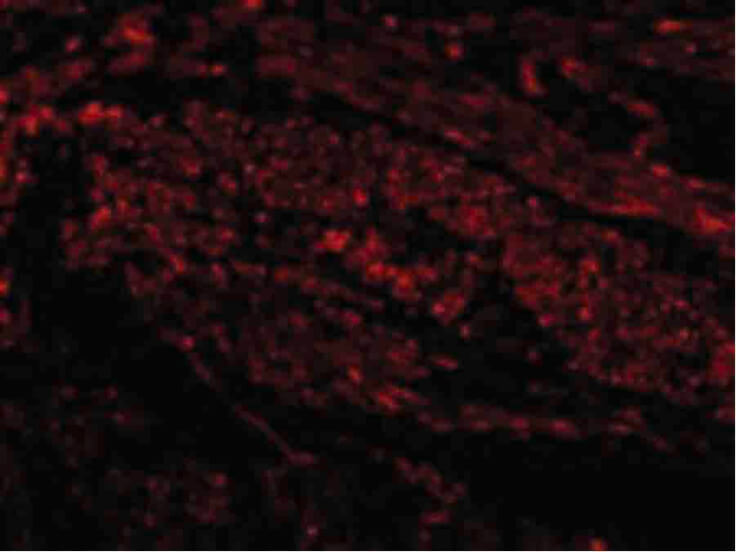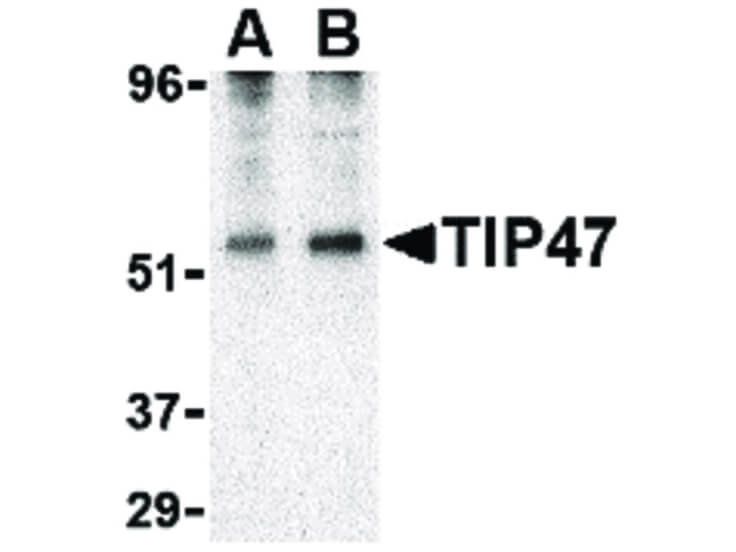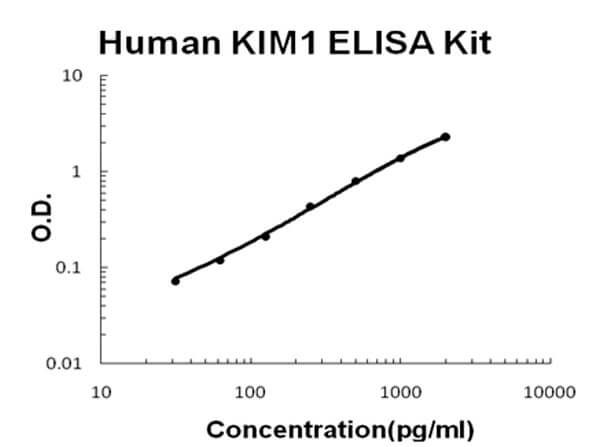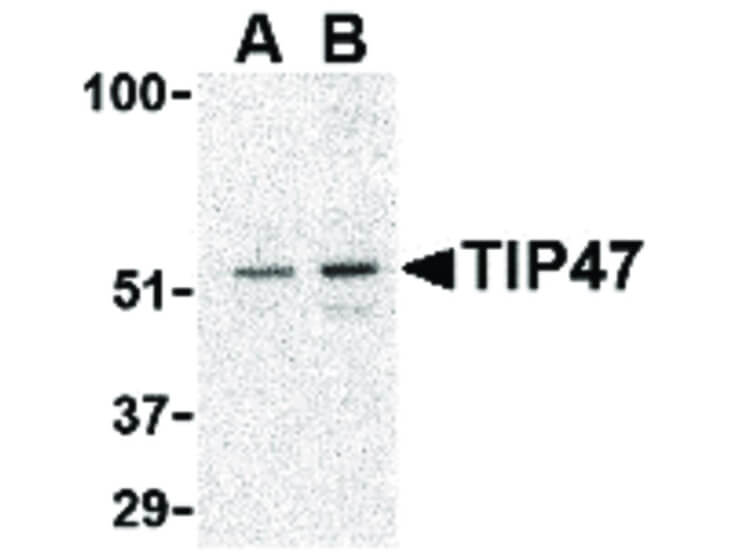Datasheet is currently unavailable. Try again or CONTACT US
TIM-1 Antibody
Rabbit Polyclonal
600-401-FE7
100 µg
Liquid (sterile filtered)
WB, ELISA
Human, Rat
Rabbit
Shipping info:
$50.00 to US & $70.00 to Canada for most products. Final costs are calculated at checkout.
Product Details
Anti-TIM-1 (RABBIT) Antibody - 600-401-FE7
TIM-1 Antibody, TIM, KIM1, TIM1, HAVCR, KIM-1, TIMD1, TIMD-1, HAVCR-1, Hepatitis A virus cellular receptor 1, Kidney injury molecule 1, HAVcr-1, T-cell immunoglobulin and mucin domain-containing protein 1, T-cell immunoglobulin mucin receptor 1, T-cell membrane protein 1, CD365
Rabbit
Polyclonal
IgG
Target Details
HAVCR1 - View All HAVCR1 Products
Human, Rat
Conjugated Peptide
Anti-TIM-1 antibody was prepared from whole rabbit serum produced by repeated immunizations with a 16 amino acid synthetic peptide from near the internal region of human TIM-1.
Anti-TIM-1 Antibody was affinity purified from monospecific antiserum by immunoaffinity chromatography. Cross reactivity with TIM-1 from other sources has not been determined.
Application Details
ELISA, WB
Anti-TIM-1 Antibody has been tested for use in ELISA and Western Blotting. Specific conditions for reactivity should be optimized by the end user. Expect a band at approximately 39 kDa in Western Blots of specific cell lysates and tissues.
Formulation
1 mg/mL by UV absorbance at 280 nm
0.01 M Sodium Phosphate, 0.25 M Sodium Chloride, pH 7.2
0.02% (w/v) Sodium Azide
None
Shipping & Handling
Dry Ice
Store vial at -20° C prior to opening. Aliquot contents and freeze at -20° C or below for extended storage. Avoid cycles of freezing and thawing. Centrifuge product if not completely clear after standing at room temperature. This product is stable for several weeks at 4° C as an undiluted liquid. Dilute only prior to immediate use.
Expiration date is one (1) year from date of receipt.
The human form of TIM-1 was initially discovered as a membrane glycoprotein through which the hepatitis A virus can gain entry into a cell. It was also identified as kidney injury molecule 1 (Kim-1), a predicted adhesion molecule that is upregulated on the surfaces of kidney epithelia. It is also expressed on T helper 2 (Th2) cells of the immune system, and following the binding of its natural ligand TIM-4, stimulates T cell expansion and cytokine production in response to viral challenge. It has been suggested that hyperactivation of TIM-1 leads to an increased level of Th2 responsiveness and asthma susceptibility, and antibodies to TIM-1 may therefore be a novel approach to treating asthma.
This product is for research use only and is not intended for therapeutic or diagnostic applications. Please contact a technical service representative for more information. All products of animal origin manufactured by Rockland Immunochemicals are derived from starting materials of North American origin. Collection was performed in United States Department of Agriculture (USDA) inspected facilities and all materials have been inspected and certified to be free of disease and suitable for exportation. All properties listed are typical characteristics and are not specifications. All suggestions and data are offered in good faith but without guarantee as conditions and methods of use of our products are beyond our control. All claims must be made within 30 days following the date of delivery. The prospective user must determine the suitability of our materials before adopting them on a commercial scale. Suggested uses of our products are not recommendations to use our products in violation of any patent or as a license under any patent of Rockland Immunochemicals, Inc. If you require a commercial license to use this material and do not have one, then return this material, unopened to: Rockland Inc., P.O. BOX 5199, Limerick, Pennsylvania, USA.

